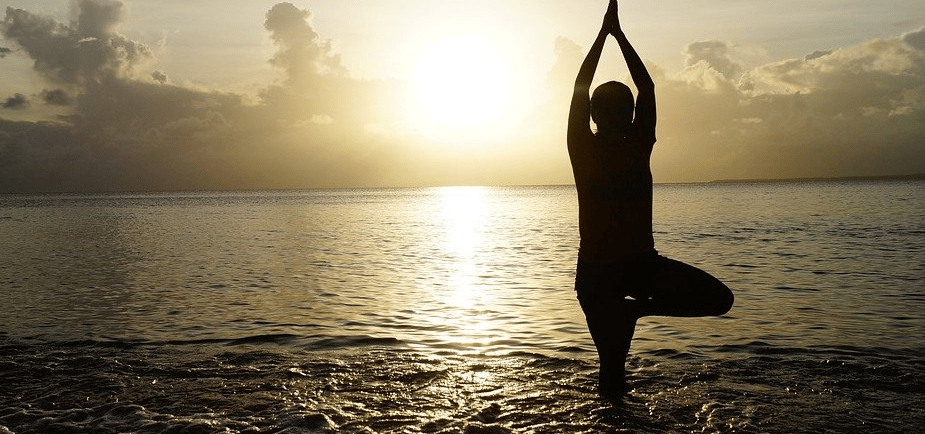Ancient Movements, Modern Relief: How Tai Chi Yoga Walking and Jogging May Combat Insomnia
New systematic research suggests that practices like yoga and Tai Chi plus more accessible exercise such as walking or jogging may significantly improve sleep quality and ease symptoms of insomnia.
SELF-HELP


Sleep. It is foundational. When it falters our energy flags our mood sags and our health becomes vulnerable. For many the grip of insomnia feels relentless. What if the path to better sleep was not in pills or expensive therapies only but in movement that anyone can do? A new large-scale analysis points toward exactly that possibility.
The Evidence Awakens
In a recent meta-analysis published in BMJ Evidence-Based Medicine researchers examined 22 randomized controlled trials involving 1,348 adults with insomnia or insomnia symptoms. The interventions compared 13 different treatment strategies including non-exercise therapies such as cognitive behavioural therapy sleep hygiene and more holistic or traditional approaches. Seven of the thirteen were exercise based: yoga; Tai Chi; walking or jogging; combined aerobic plus strength training; strength training alone; aerobic plus therapy; mixed aerobic exercises. PubMed+2bmjgroup.com+2
Compared with usual care or lifestyle modifications the findings were striking. Yoga was associated with a large increase in total sleep time — nearly two hours when measured via sleep diaries. Sleep efficiency also improved by around 15 percent. Time awake after falling asleep dropped, as did the amount of time needed to fall asleep. PubMed+2bmjgroup.com+2
Tai Chi also showed strong benefits: more than 50 minutes extra sleep, fewer awakenings after falling asleep, shorter sleep latency by approximately 25 minutes, and improvements in subjective sleep quality measures. bmjgroup.com+2PubMed+2
Walking or jogging likewise delivered meaningful change. Insomnia severity (as measured by standard scales) dropped substantially. The analyses suggest these more accessible forms of exercise could reduce the burden of sleeplessness even when more structured therapies are less available. PubMed+1
There are physiological reasons to believe these results are not merely correlational. Yoga and Tai Chi incorporate breath control relaxation techniques and gentle movements that reduce anxiety and lower sympathetic nervous system overactivation. Walking and jogging raise energy expenditure help regulate stress hormone cortisol promote emotional regulation and enhance secretion of melatonin. These changes may improve deep or restorative sleep. bmjgroup.com+2PubMed+2
Limitations exist. The quality of many of the trials was mixed. Several had methodological concerns. There was variation in how often and how intensely people practiced. But even allowing for those caveats the signal is strong: certain kinds of movement carry real power for sleep. PubMed+1
Real-World Scenarios: How this Might Change Lives
Imagine someone juggling stress at work, restless nights, anxiety tossing them awake. If this person commits to 45 minutes of yoga three to five times per week or takes brisk walks or gentle jogs on most days the research suggests their nights could shift. Sleep may come more quickly stay more sustained awakenings may drop.
For those whose insomnia is longstanding but who find access to therapy or sleep specialists difficult the appeal of exercise based options is clear. Practices like Tai Chi are low cost low risk and accessible in many community settings. Walking or jogging require minimal equipment.
Institutions—employers health providers community organisations—could integrate these forms of movement into programs, potentially reducing reliance on medication and alleviating strain on mental health services.
Takeaway: Toward Restorative Nights
The path forward is simple but demands consistency. Move in a way that calms both mind and body. Yoga and Tai Chi offer movement and mindfulness. Walking or jogging activate the body and help reset biological rhythms. Doing so regularly over weeks not days matters more than doing so intensely once.
For anyone struggling with insomnia this research offers hope and direction. You may consider starting with gentle yoga or Tai Chi two to three times per week, adding walking or jogging on alternate days. Monitor how you feel over time. Notice when falling asleep becomes easier when awakenings decrease when mornings feel more restorative.
At TMFS we believe wellbeing is holistic. Restful sleep supports everything: cognitive clarity emotional wellbeing resilience. When practices rooted in tradition meet rigorous evidence they offer powerful tools—tools that belong to the many not the few. Let your body move toward rest. Let your nights reclaim peace.
Disclaimer:
All rights belong to their respective owners. This article contains references and insights based on publicly available information and sources. We do not claim ownership over any third-party content mentioned.
